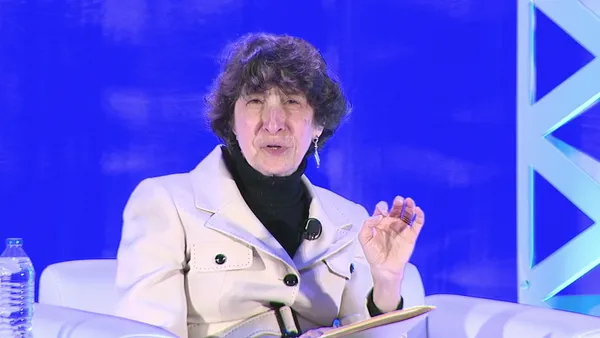Dive Brief:
- A federal appeals court declined June 11 to force the U.S. Department of Labor's (DOL) Occupational Safety and Health Administration (OSHA) to issue temporary emergency workplace standards in light of the COVID-19 pandemic (In re: American Federation of Labor and Congress of Industrial Organizations, No. 20-1158 (D.C. Cir. June 11, 2020)).
- AFL-CIO, a labor union organization, had requested an emergency standard on infectious diseases. The court said while OSHA is authorized to issue emergency standards if it determines that workers are in grave danger, it is entitled to "considerable deference."
- The U.S. Chamber of Commerce, a business organization, argued against such a standard, arguing that the agency "reasonably decided that coupling OSHA's existing safety standards with flexible, industry-specific guidance informed by evolving scientific understanding" is enough to protect workers from the novel coronavirus.
Dive Insight:
In a statement following the ruling, AFL-CIO President Richard Trumka said the organization is disappointed that the court "repeat[ed] the false claim by Big Business that the Occupational Safety and Health Administration already has done what is needed to protect workers."
DOL officials, however, said the agency is pleased with the court's decision and will continue to enforce the law and offer guidance.
The Occupational Safety and Health Act of 1970 requires employers to provide healthy and safe workplaces for employees. And OSHA, like other federal agencies, has issued several guidances in recent months aimed at helping employers deal with the pandemic. Last week, the agency recommended that employers encourage workers to wear face coverings at work. It noted, however, that employers can decide whether to implement varying rules for different circumstances.
Earlier, OSHA issued enforcement guidance for employers, one for recording COVID-19 cases and the other regarding its plans for on-site inspections. The agency said employers must record a case if the employee's illness is diagnosed as COVID-19 under guidelines established by the Centers for Disease Control and Prevention (CDC); is work related; and meets one or more of OSHA's general recording criteria — death, days away from work, restricted work or transfer to another job, medical treatment beyond first aid, loss of consciousness or a diagnosis considered significant by a physician or other health care professional.
In the other directive, OSHA said that in areas of the U.S. where the spread of COVID-19 has declined, it will: return to its pre-pandemic inspection policy but will continue to prioritize coronavirus cases; use phone, fax and rapid response inspections where appropriate; and ensure that inspectors take all safety precautions when dealing with COVID-19 cases. In areas still experiencing high levels of COVID-19 cases, OSHA will continue to prioritize high-risk workplaces for on-site inspection.
OSHA also recently urged workers to "immediately" report retaliation for reporting unsafe working conditions and reminded employers that it is illegal to take adverse employment actions against workers who report unsafe and unhealthy working conditions related to the COVID-19 pandemic.













